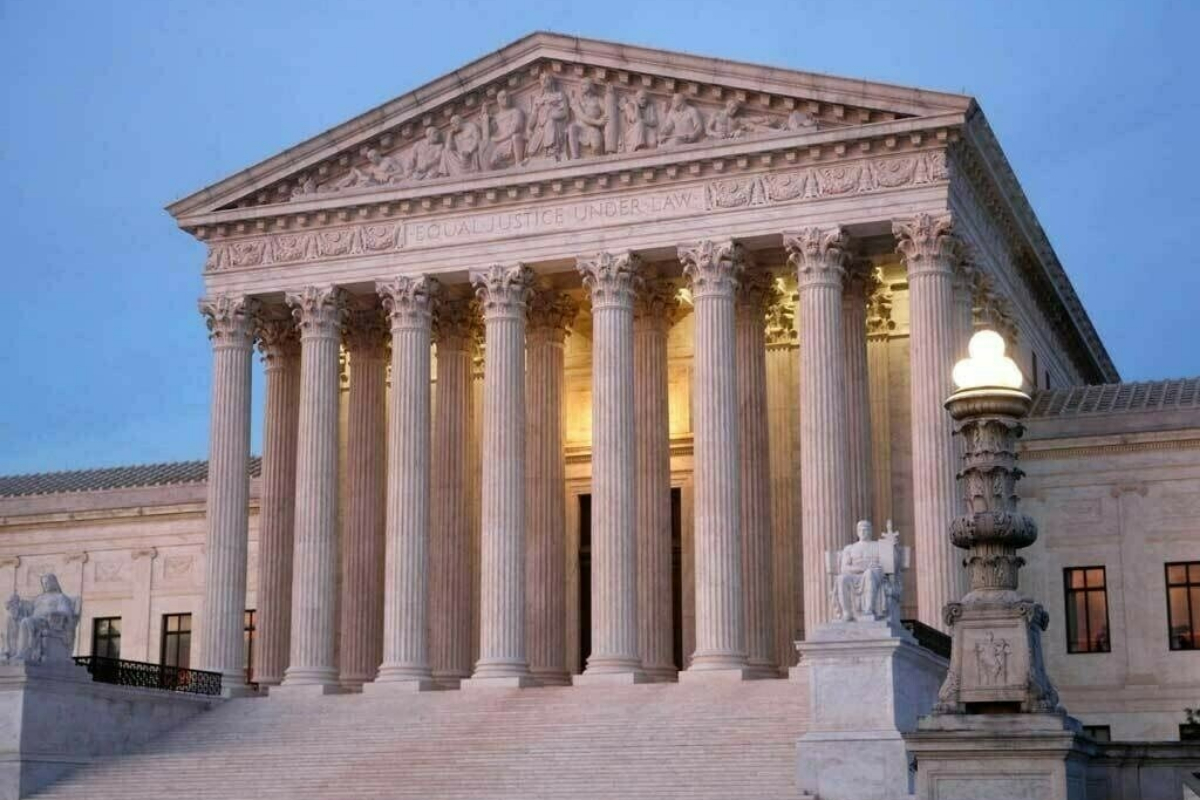- US Supreme Court will hear arguments this week on a quarter-century-old statute that shields digital companies from lawsuits.
- The justices will hear arguments from families of terrorist attack victims accusing Google and Twitter.
- The court’s decisions are due by June 30.
WASHINGTON – The US Supreme Court will hear arguments this week on a quarter-century-old statute that shields digital companies from lawsuits and prosecution for content uploaded by their users, raising the prospect that the internet’s regulations will be overturned.
Section 230, enacted when Facebook creator Mark Zuckerberg was only 11 years old and Google was still two years away, is regarded as foundational legislation of the internet and is considered inviolable by its fervent supporters.
Section 230 was part of the Communication Decency Act, a 1996 anti-pornography statute that helped create the ground rules for the internet, which was still in its infancy as an online playground for all.
The objective was to shield the then-emerging internet sector from a cascade of litigation, allowing it to thrive while encouraging digital companies to filter their material.
At the time, the focus was on prohibitions on sexual content, which were part of a statute supported by then-President Bill Clinton and ultimately overturned by the Supreme Court in a landmark case.
However, Section 230 of the legislation specified that “no supplier or user of an interactive computer service shall be treated as the publisher” or be held responsible for the content provided by a third party.
This protection is widely seen as the regulatory modification that would eventually pave the way for Google search and plant the seeds of the social media revolution.
Under Section 230’s protection, Facebook, Instagram, Twitter, and YouTube became global communication hubs, never fearing a lawsuit from someone offended by a tweet or a contentious video.
The rule also safeguards Wikipedia and classified ad sites like Craigslist, whose popularity would similarly upend traditional media.
Opponents of the bill, on the other hand, want to see platforms sued for drug deals, cyberstalking, and violent threats that occur on their services.
To be sure, Section 230 is not absolute free expression as advocated by Elon Musk, the multibillionaire owner of Twitter.
After being stung by scandals, many tech companies hire thousands of people to control their platforms in order to retain their large audiences and advertising while avoiding more regulatory scrutiny.
Yet, no job is ever perfect, and firms continue to encounter difficulties in monitoring content from billions of people.
Courts in the US have regularly upheld Section 230 in its almost 30 years of existence, but its powerful backers are worried about the emotionally charged cases that will be put before the Supreme Court, both involving terrorism.
Material support for terrorism
The justices will hear arguments from families of terrorist attack victims accusing Google and Twitter of “helping” the culprits, the Daesh group, by posting their propaganda in two hearings on Tuesday and Wednesday.
In their legal brief to the court, lawyers for Nohemi Gonzalez’s family stated that by recommending “ISIS films to users, Google supports ISIS in propagating its message and thereby offers material assistance to ISIS…”.
Gonzalez, a 23-year-old American citizen, was killed when Daesh militants opened fire on an outdoor audience at Paris’ La Belle Equipe café.
Section 230 is also being challenged by twenty-eight state governments.
“What was enacted as a narrow protection from defamation liability has become an all-purpose license to exploit and profit from harmful third-party conduct,” said a brief from several of those states, including Alabama and California.
The case is unique in that the complainants this time are blaming algorithms for the harm, claiming that the extremely complex recommendation systems perfected by huge platforms fall outside the ambit of Section 230.
The large IT industry, but also a variety of other actors, are vehemently opposed to reviewing Section 230 and the latest arguments being advanced.
“If this case alters federal law, companies are likely to respond in one of two ways to protect themselves legally,” warned Matt Schruers, head of the Computer and Communications Industry Association.
“Companies who could muster the resources would over-moderate everything, while others would throw up their hands and not moderate anything,” he said.
In the other instance, family members of Nawras Alassaf, a Jordanian slain in a Daesh group attack in Turkey, say that Twitter did not do enough to filter out extremist information.
The court’s decisions are due by June 30.
[embedpost slug=”/the-us-supreme-court-upholds-the-current-border-policy/”]





















